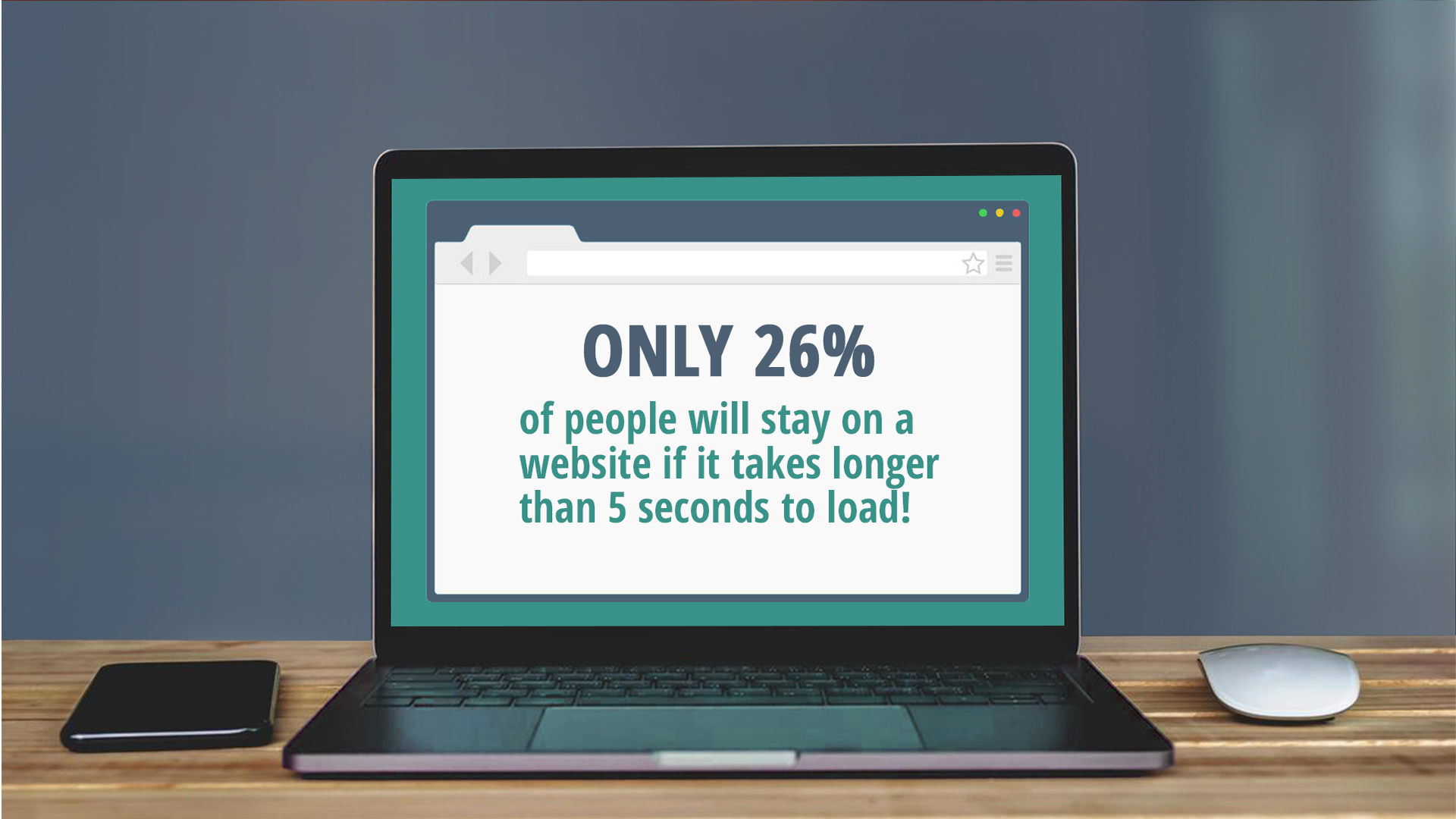
INTRODUCTION
In short, yes. So, let’s dive into the what’s, why’s, and how’s. If your website is clunky or slow, it can be fatal for your business. In this virtual age, with increasing numbers of customers and businesses moving online, an optimized website is critically important.
Here, we’ll go over the consequences of a slow website, what can cause those issues, and how you can best go about fixing them.
How A Slow Website Can Hurt Your Business
How do we measure a website? When it comes to loading times affecting your website conversion, every second counts.
One study found that 47% of customers expected a website to load in 2 seconds or less. Every additional second of load time can decrease conversion by up to 7%. Over ¼ of users said they wouldn’t tolerate a web page taking longer than four seconds to load.
A slow website:
- Handicaps conversion
- Poorly impacts the user experience
- Is frustrating to navigate
- Directly reflects on the competency of your business
A slow website can be difficult to diagnose. You can test your website’s performance here.
If left unaddressed, a slow website can be a death sentence for any small business. You may not even be aware your website is too slow for users. So, it’s important that you familiarize yourself with how efficiently your website functions.
The fact is, modern consumers, don’t have the patience for a slow website. The internet has conditioned customers for instant gratification. If customers can’t quickly load your website, chances are that there is another website providing the same service that will load more quickly, and that’s where they’ll end up.
Why Is My Website Slow?
There are a number of factors that can contribute to a slow website. Your website might be slow because:
- Unoptimized code or UI.
- If you’re using a service like WordPress or Squarespace – too many plugins can slow down your website.
- Ads- While advertising on your website can be a useful source of revenue, it can also be hurting your website’s performance.
- Unoptimized images.
- Flash content – While convenient, flash content is outdated and can contribute to a slow website.
How A Slow Website Affects Bounce Rates and Handicaps Conversion
There is a direct correlation between the speed at which your pages load and the number of pages users visit. Firefox reports a 15.4% decrease in downloads when load times increase by 2.2 seconds.
Google reports that it would lose approximately 8 million searches a day if its load times increased by just 0.4 seconds. According to Amazon’s internal testing, 1.6 Billion dollars is lost per second of site speed decline. (Source)
If the largest companies in the world are concerned about website speeds, you should be too. The numbers back it up, a slow website directly impacts your bottom line, and reflects poorly on your business. So, how do we fix it?
Remedies For A Slow Website
You’re struggling with load times, and you’ve gone through the process to figure out what might be hindering your website’s performance. Fear not, there is hope!
There are a number of possible remedies for a slow website.
- Consider a CDN (Content Delivery Network)
- A CDN will allow users who are located far away from your main server to load your site quickly.
- Third-party issues
- If you use a third-party service during checkout to verify user’s information, their own performance issues could be affecting your site.
Google suggests the following remedies to decrease your websites load times:
- Avoid bogging down your site with too much content
- If your website is overloaded with content, pages, attachments, or gadgets, it can affect load times. Consider dividing content into multiple pages, or removing unnecessary content to decrease load times.
- Page-Level Permissions
- “If page-level permissions have been enabled, the sharing setting of each page will be checked. This can cause the site to load slowly if the site has a lot of pages and has been shared with many collaborators.” (Source)
- Dynamic Content & Automatic Navigation
- Dynamic content is user-specific content that is based on available data, such as automatic navigation. While these features can be useful, consider disabling them to decrease your website’s load times.
In this modern virtual age, your business might not survive with a slow website. There are a number of factors that can contribute to your website loading slowly. Utilize available resources in order to diagnose what is causing your website to load slowly. Then, take the steps to remedy those causes and improve the performance of your website.
A slow website hurts your conversion rate, your bounce rate, and ultimately, your bottom line. It’s imperative that your website runs smoothly and loads quickly. By optimizing your website, you’re preparing your business to have an effective online presence in a dynamic market.